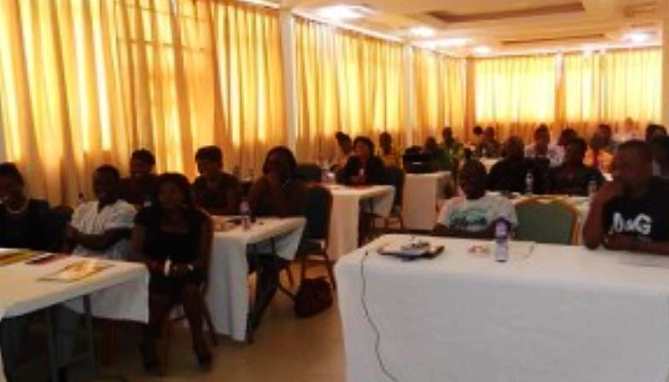
Organisation trains 120 on gender, human rights advocacy
The Gender Studies and Human Rights Documentation Centre (Gender Centre), a women’s right advocacy organisation, has organised training for a total of 120 people in gender and human rights advocacy to enable them to sensitise their communities to issues of gender-based violence and human rights and help tackle the pervasive social issue of violence, especially against women.
The organisation, with support and sponsorship from What Works, UKaid and the University of Ghana’s School of Public Health, organised the two-week training programme for the trainees, who were carefully selected by the Gender Centre, and chiefs within their communities. They were taken through topics such as, ‘Definition of Violence’, ‘Root Causes of Violence’, ‘Different Types of Violence’ and ‘Responding to Violence Victims’.
Violence against women
The training was to educate trainees, also called Community-based Action Teams (COMBAT) on violence against women, and empower them to sensitise their communities to violence against women, intervene during crisis, accompany victims to report to state agencies if necessary, and provide counselling for victims.
The Project Officer for What Works, Mrs Esther Darko-Mensah, noted that gender-based violence had been perpetuated in some communities because many people had not been empowered to deal with the issues resolutely.
She said the aim of the project was not to break up families but to train people, and to also help empower victims of gender-based violence to make informed decisions about what was happening to them.
Challenges
She noted that some of the problems which had made it difficult for the nation to deal with gender-based violence included ignorance of the laws, traditional customs and norms and “the extensive and lengthy legal system”.
Mrs Darko-Mensah said she was optimistic that the training would enable the trainees to become advocates against violence against women in their communities and help many more victims to overcome the cycle of violence.
In an interview with one of the participants, Ms Grace Andoh, she said there was not much education on gender-based violence in most communities, especially in rural communities.
She stated that our traditional norms and values were usually against efforts to fight against gender-based violence which were mainly against women.
She said the training programme had equipped participants to better understand issues of violence against women. She, therefore, expressed optimism that the incidence of violence against women would reduce in the community.
